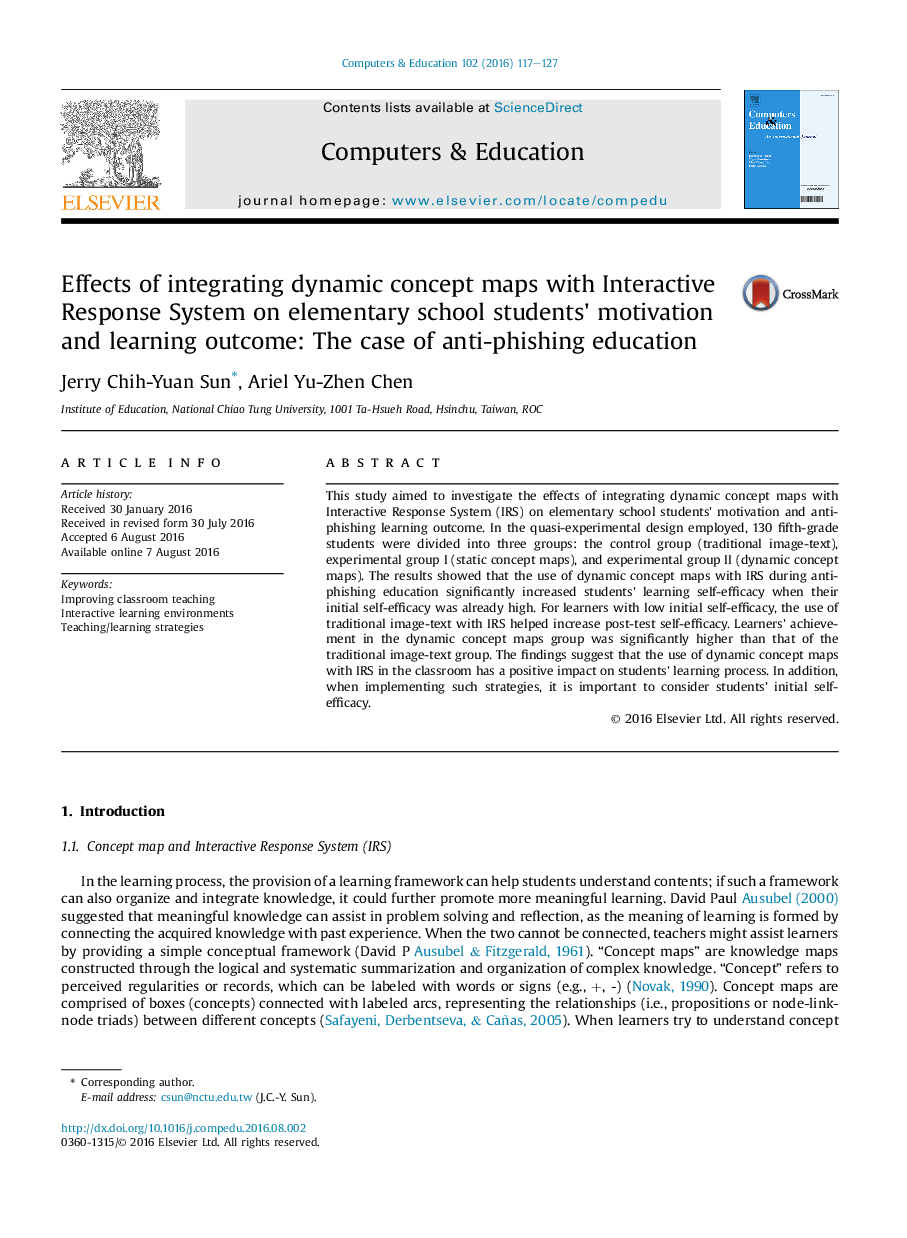| Article ID | Journal | Published Year | Pages | File Type |
|---|---|---|---|---|
| 6834835 | Computers & Education | 2016 | 11 Pages |
Abstract
This study aimed to investigate the effects of integrating dynamic concept maps with Interactive Response System (IRS) on elementary school students' motivation and anti-phishing learning outcome. In the quasi-experimental design employed, 130 fifth-grade students were divided into three groups: the control group (traditional image-text), experimental group I (static concept maps), and experimental group II (dynamic concept maps). The results showed that the use of dynamic concept maps with IRS during anti-phishing education significantly increased students' learning self-efficacy when their initial self-efficacy was already high. For learners with low initial self-efficacy, the use of traditional image-text with IRS helped increase post-test self-efficacy. Learners' achievement in the dynamic concept maps group was significantly higher than that of the traditional image-text group. The findings suggest that the use of dynamic concept maps with IRS in the classroom has a positive impact on students' learning process. In addition, when implementing such strategies, it is important to consider students' initial self-efficacy.
Related Topics
Social Sciences and Humanities
Social Sciences
Education
Authors
Jerry Chih-Yuan Sun, Ariel Yu-Zhen Chen,
